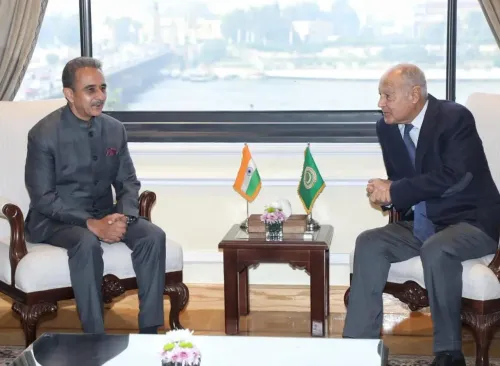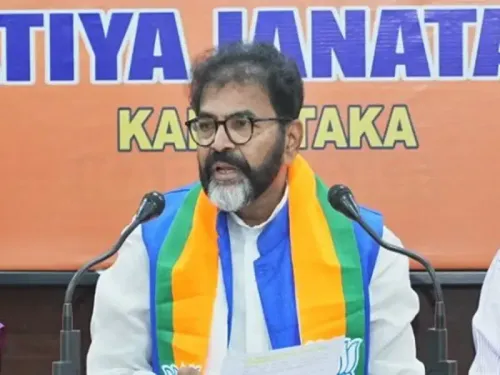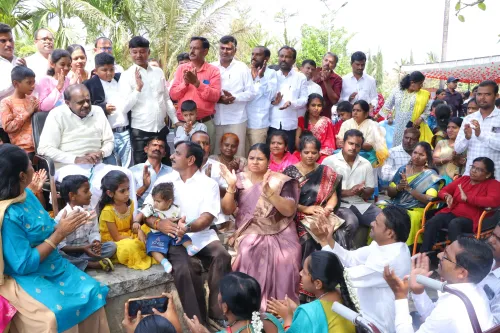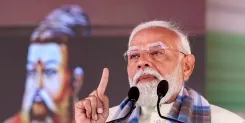How is the Delhi Assembly Honoring Over 200 Visitors from Maoist-hit Districts?
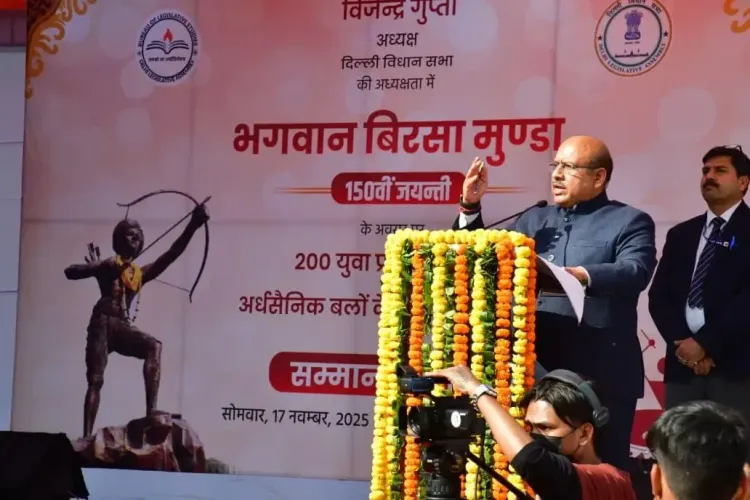
Synopsis
Key Takeaways
- Celebration of diversity and inclusion is crucial for national progress.
- Empowering youth from marginalized regions can reshape our future.
- Engagement with democratic institutions is vital for inspiring young leaders.
- Birsa Munda’s legacy continues to guide social and environmental movements.
- Unity among diverse communities strengthens the nation's fabric.
New Delhi, Nov 17 (NationPress) In a heartfelt tribute on the occasion of the 150th Jayanti of Bhagwan Birsa Munda, Speaker of the Delhi Assembly, Vijender Gupta, emphasized the need to reaffirm our dedication towards a more inclusive India that celebrates its diversity and safeguards the environment.
During a commemorative event at the Delhi Legislative Assembly, Gupta stated, “As we honor the 150th Jayanti of Bhagwan Birsa Munda, let’s recommit ourselves to constructing an India that respects diversity, protects its environment, and guarantees that the most underprivileged and marginalized individuals secure their rightful position in our national narrative.”
Gupta portrayed Birsa Munda as an enduring emblem of bravery whose legacy remains a guiding light for India’s shared consciousness.
As part of the Mera Yuva Bharat (MY Bharat) initiative by the Ministry of Youth Affairs and Sports, Government of India, 200 young individuals and 20 officials from CRPF, BSF, and ITBP hailing from eight districts afflicted by Naxalism—including Bastar, Kanker, Narayanpur, West Singhbhum, Balaghat, Kandhamal, Kalahandi, and Gadchiroli from Chhattisgarh, Madhya Pradesh, Jharkhand, Odisha, and Maharashtra—visited the Delhi Legislative Assembly to share their experiences from the capital.
The event was attended by Delhi Cabinet Minister Ashish Sood, who served as the Chief Guest, alongside Deputy Speaker Mohan Singh Bisht and MLA Sanjay Goyal.
The attendees expressed immense happiness at the chance to explore the national capital, observe its modern infrastructure, and engage with its vibrant cultural and political atmosphere. Numerous youth took to the stage to confidently share their insights, showcasing how the exposure broadened their perspectives and motivated them through direct interaction with democratic institutions.
Gupta remarked that Birsa Munda’s Ulgulan was not just a rebellion but a disciplined movement merging spiritual awakening with social reform and political resistance. He pointed out that the Chotanagpur Tenancy Act of 1908 stands as a lasting tribute to Birsa’s sacrifices, a legislation that protected tribal lands, abolished forced labor, and upheld their ancestral rights.
“His message of safeguarding jal, jungle, and zameen serves as a reminder that genuine progress must respect both humanity and our planet,” he added.
Welcoming the youth participants and officials from CRPF, BSF, and ITBP from eight Naxal-affected districts, the Hon’ble Speaker affirmed that their presence exemplified unity and national service.
He encouraged the youth to draw inspiration from the ideals of “Dharti Aaba,” which advocate for equality, integrity, and harmony with the environment as India progresses towards Viksit Bharat 2047.
“Birsa Munda’s journey teaches us that true leadership is rooted in conscience and that our nation’s strength lies in justice, diversity, and compassion,” he stated.
Delhi Cabinet Minister Ashish Sood remarked, “Education is truly complete only when it connects the youth with their roots.”
In welcoming the paramilitary officers and students from tribal areas, he noted that the Delhi Legislative Assembly is privileged to host young representatives from Bastar and other regions in Chhattisgarh.
He underscored that the vision of NEP 2020—to prepare future-ready citizens through the Indian Knowledge System—can only be realized when students traverse the country, learn about its diverse cultural heritage, and deeply understand their own traditions.
Deputy Speaker Mohan Singh Bisht mentioned that the visit of youth and paramilitary officers under the MY Bharat initiative reflects the nation’s collective commitment to empowering young citizens from Maoist-affected areas.
He observed that their presence in the Delhi Legislative Assembly symbolizes hope, progress, and unity, and that such exposure to the capital and its democratic institutions will inspire them to aspire for greater dreams and contribute confidently to the nation’s future.


